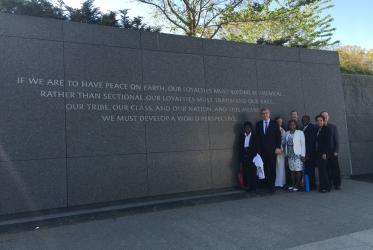Displaying 1 - 16 of 16
Taking the measure of the ecumenical movement today
30 November 2016
WCC condemns escalating racial violence in the USA
09 July 2016
USA Racial Justice Accompaniment Visit
18 April 2016
Christians are called to be peacemakers and to build just peace
02 December 2014
Assembly renews churches’ commitment towards justice and peace
08 November 2013








